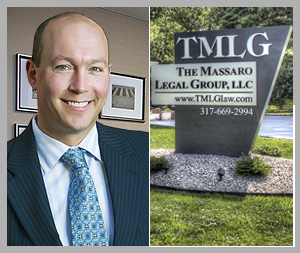It was a cold and snowy day in January 1977 as I sat in the back of my family’s car, parked in front of the three-flat we lived in. I had just turned 6 the month before. My dad was in the driver’s seat getting ready to pull away from the curb, my mom next to him, and my brother was to my left in the back. I had no idea I was about to have an experience that would shape my life forever.
We lived on the southwest side of Chicago on South Kolmar Avenue. Kolmar is about six blocks east of South Cicero Avenue, itself just east of Midway Airport. We lived there, in part, because my father was a veteran of the Chicago Police Department and was at that time required to live within the city limits. Almost every day, my dad would take the Stevenson to the 11th precinct—the Fillmore. At that time, the Fillmore was known as the “Wild, Wild West” and routinely led the city in homicides and serious crimes.
As I sat, I saw an elderly man, probably in his 70s, in a brown coat. He was using both his hands to pull his collar up around his neck and head. He walked as fast as he could and angled steeply forward in a hunch. Behind him was a man, probably in his late 20s, repeatedly pounding this gentleman’s head with ice balls. The attacker had slipped out from one of the “gangways” that separated the homes in that area. I could not fathom why someone would be so cruel. Apparently, my father felt the same way.
Without a word spoken – and without hesitation – my dad jumped out of the car and ran across Kolmar to where all this was occurring. My dad was about 5”10” and 185 pounds. However, he was ridiculously strong and could be immensely intense. Given the demands of his job – the stabbings, the constant injuries – intensity was a necessary survival tool.
I saw my dad descend on this coward like a freight train and proceed to tune him up right there on the sidewalk. After a few minutes my dad dragged him across the street and placed him in the back seat of our car right between my brother and me. I felt no fear just utter shock.
So, what is the point of all of this? The point is that my dad, who was off duty and wanted only to share precious time with his family, served a stranger regardless of the risk to his own safety. Some might contend that what my father did was wrong, too extreme, unnecessary, or, even, cruel. Perspective and context are important. I can assure you it was none of those things to that elderly man. Furthermore, the intensity of that lesson may have altered that young man’s behavior in the future. Maybe there was one less bully in the world that day who, in turn, did not go on to create other bullies. That is how I see it.
From that day forward, I have been keenly aware of how people treat one another. I am often saddened by what I see. In my mind there are only two reasons why people treat each other so unkindly. Either they don’t understand how people should interact, or they fully understand it but choose to ignore it. I do not know which it is, and I am not sure which is worse.
Service to one’s fellow humans does not have to be in the form of sitting on the board of a nonprofit. Nor does it require that one act in physical ways like my father did. While these kinds of service are admirable, they do not constitute the universe of ways to positively affect those around us. It can be as simple as letting someone cut into traffic, a kind word, a smile, or an offer to help. It is having the empathy to understand the needs of others with no expectation of praise, approval, or, even, recognition.
I am, like all of us, a product of my past, my experiences, and upbringing. My upbringing guides me to serve others not just with my time and money, but also with action and empathy. I think our daily interactions, our jobs, our perspective, and our lives, in general, would be greatly enhanced if we kept this notion of empathetic service in the forefront of our minds. A maxim of a trial lawyer is to speak and act “as if the jury is always looking—because they are.” The same goes for our friends, colleagues, co-workers, and especially our children. And, you never know, what you do or do not do today may impact a 6-year-old who remembers it for the rest of his life.
Mr. Massaro is the owner of The Massaro Legal Group in Indianapolis, where he focuses his practice primarily in complex business, commercial, contract, and real estate litigation. He serves on the Board of Directors of the DTCI. The opinions expressed in this article are those of the author.














